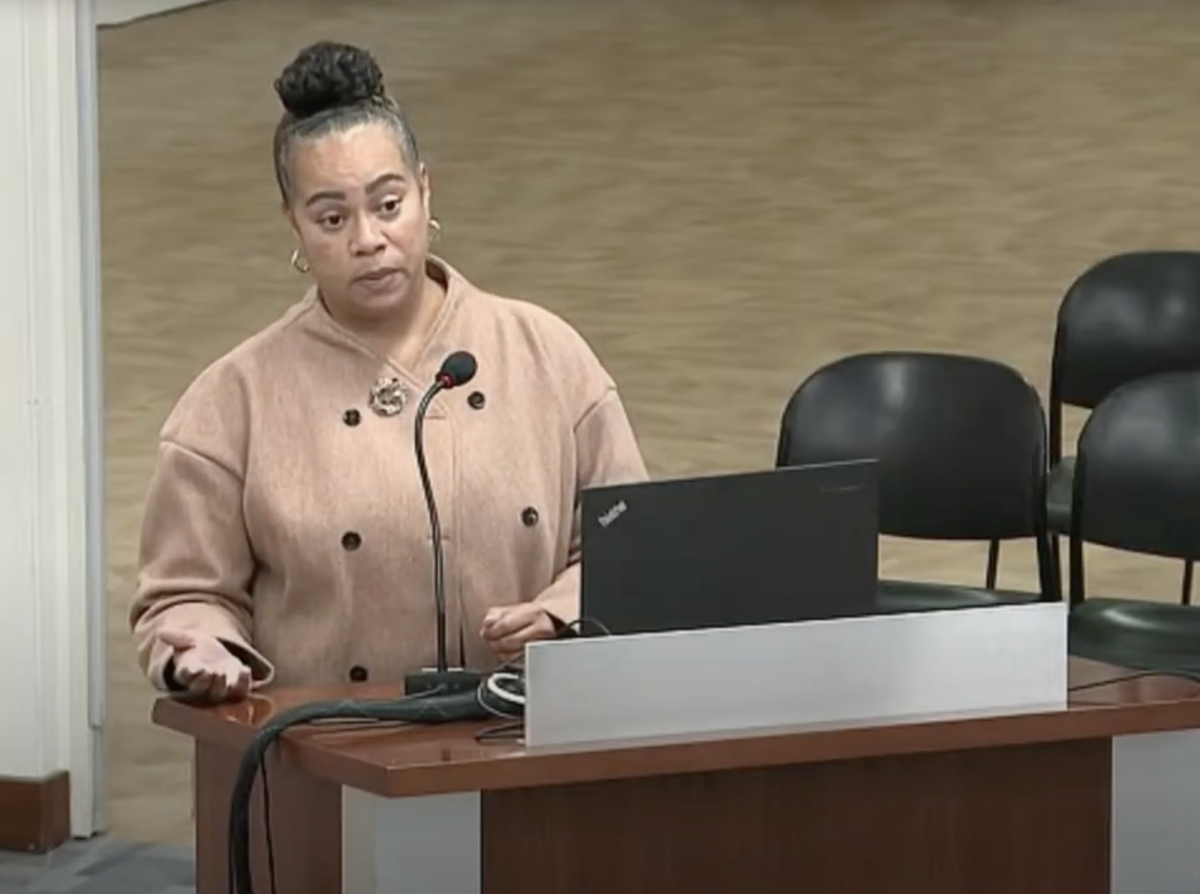Producers of KPFA’s ‘UpFront’ share history and future of alternative station
by Michelle Snider

Radio producers Corinne Smith, Justin Gold of KPFA’s “UpFront” and former apprentice with the First Voices Apprenticeship program Ephraim Colbert presented the compelling history and new opportunities that community-powered radio provides on Nov. 29 at the Survey of Mass Media class.
“Upfront” is a news show that airs two hours daily on KPFA from 7–9 a.m. The producers took turns speaking on the topic of community-powered radio as an important media platform that provides information and stories that are often missed in corporate media.
In 1949, KPFA was founded by war resister Lewis Hill in Berkeley, Ca. The six stations nationwide include Berkeley, Los Angeles, Fresno, New York City, Houston, Tx, and Washington, D.C. Owned by the Pacifica Foundation, KPFA has about 80 regular staff, half of whom are volunteers.
World-renown reporter Amy Goodman worked at KPFA more than 20 years before she became the host of “Democracy Now!”
As part of the presentation, Gold played a youtube video of Goodman telling the history of KPFA that included a time when the Ku Klux Klan set off two bombs at Pacifica’s Houston station in the spring of 1970. Goodman explained the reason why domestic terrorists would attack community radio.
“I think because they understood how dangerous Pacifica is. Dangerous because it allows people to speak for themselves.” Goodman said. “When you allow people to speak for themselves, it breaks down the bigotry, the hatred and the character that fuels the hate groups.”
Smith explained the origins of KPFA as the first community-powered radio in in the U.S. Community power is achieved by the people who come in and make it happen. Gold followed by explaining that there is no advertising and no special-interest advertisers who give money to report on specific interests that may not be constructive for listeners.
“Things that don’t necessarily get reported on networks like CNN — we report on,” Gold said. “It’s people who come in that make it happen. People really care that quality content is created and ready to consume.”
Because it’s community-based radio, there have always been disputes on how to best manage the news broadcast and its message.
“We’ve had many generations and many years of conflict,” Smith said of internal philosophical struggles. “We are balanced, we think of ourselves as nonpartisan, and we are a balanced newsroom. We want to be a one-stop shop. We want people to get impressions from all over the world,” Smith said.
There was an acknowledgment of how unpaid labor can be problematic. For those who volunteer time, KPFA can be a place where you can get skills that lead to a paid position.
Colbert said his experience with KPFA has been beneficial in developing art skills that he has been able to turn into paid work. The KPFA name can hold much weight on a resume.
“What we get is more valuable than money. It is access to a 24-hour radio station. The equipment, the booths, you can sign up to use items, you can bring in a band. It goes a long way,” Colbert said.
KPFA currently has an apprenticeship program open for applicants called “First Voice Apprenticeship Program.” The program has a mission statement rooted in representing under- represented communities to initiate social change. The apprenticeship is developed around an individual’s desired skill set, whether it be an engineer, audio and video production, host or producer. To apply go to kpfaapprentice.org.

























